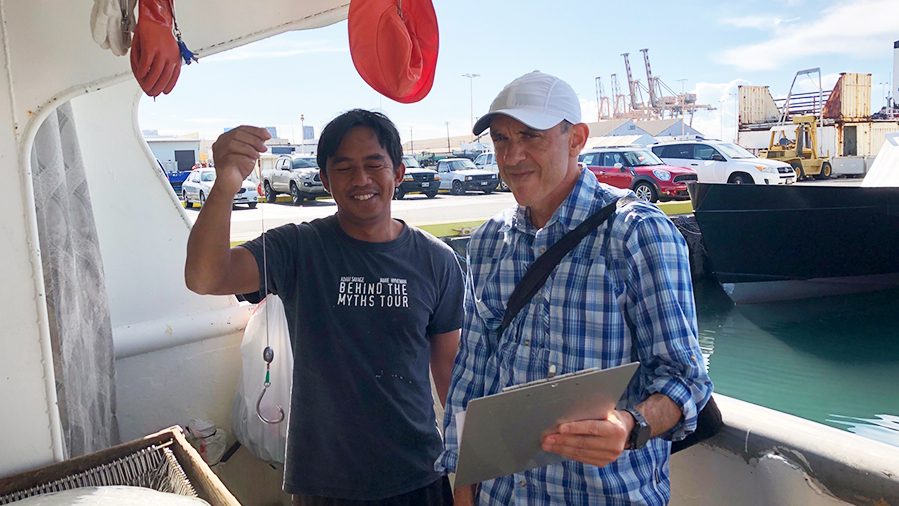Eric Gilman, Ph.D.

- Title
- Director
- Institution
- Pelagic Ecosystems Research Group
- Country
- United States
- [email protected]
- Award year
- 2020
Research
Assessing and mitigating bycatch of marine wildlife in tuna fisheries
Longline fishing, a primary method used commercially to catch tuna and related fish species, can have high rates of bycatch, or incidental catch, of seabirds, marine mammals, sea turtles, rays, and sharks. Eric Gilman’s research will assess how various bait types used with drifting longlines affect different species, especially those with low reproductive rates or other life history traits that make them particularly vulnerable to increased mortality.
Gilman will use a global analysis to assess how different bait types used in drifting pelagic longline fisheries affect catch rates for various species. By managing the baits they use, fisheries could leverage marine predators’ diverse prey preferences to help control which animals are caught. Gilman will use the findings from this research to identify best practices for bait use in global longline fisheries to reduce bycatch of vulnerable species.
Gilman also will develop an ecological risk assessment for bycatch of important species in an industrial pelagic longline fishery in the Pacific Ocean. His findings will provide fisheries managers with essential information to help protect vulnerable populations and stocks, and identify where more research is needed.
To learn more about Gilman, read his bio: https://sites.google.com/site/publicationsericgilman/eric_gilman
